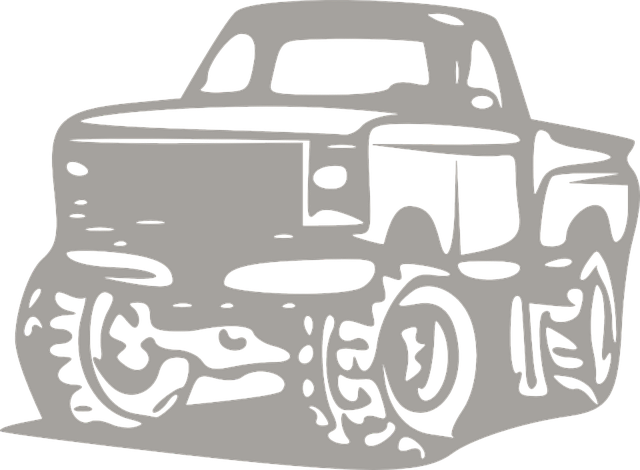Receiver hitches in McAllen are vital components for towing and hauling on trucks. These metal devices attach securely to the back of trucks with a horizontal bar and hole/slot for connecting trailers or equipment. They come in three classes (I, II, III) based on weight capacity and truck suspension in McAllen plays a key role in ensuring smooth rides during towing by absorbing impacts and maintaining proper weight distribution. Choosing the right hitch that matches your trailer type and truck frame is essential to avoid damage and ensure safe towing.
Are you ready to unlock the power of receiver hitches for your truck? This comprehensive guide explores everything you need to know about these versatile attachments. From understanding the basics to delving into the role of your truck’s suspension in MCALLEN models, we cover it all. Learn about different hitch types, essential factors to consider when choosing, and how to maximize their potential.
- Understanding Receiver Hitches: A Basic Guide
- Truck's Suspension and Its Role in Receiver Hitch Functionality (Focus on MCALLEN models)
- Types of Receiver Hitches and Their Applications
- Choosing the Right Receiver Hitch for Your Truck: Factors to Consider
Understanding Receiver Hitches: A Basic Guide

Receiver hitches are an essential component in a truck’s suspension system in McAllen. They serve as a crucial connection point for towing and hauling equipment. Understanding how they function is key to ensuring safe and efficient towing operations.
A receiver hitch is essentially a metal device attached to the back of a truck, allowing for the secure attachment of trailers or other towing equipment. It consists of a horizontal bar with a hole or slot that aligns with a corresponding mechanism on the trailer. This simple yet robust design enables seamless connection, making it possible to transport various cargoes, from small trailers to heavy machinery.
Truck's Suspension and Its Role in Receiver Hitch Functionality (Focus on MCALLEN models)

The truck’s suspension plays a pivotal role in the functionality and performance of receiver hitches, particularly in models like those by MCALLEN. These advanced suspension systems are designed to ensure smooth riding and stable towing, enhancing the overall driving experience. The suspension components, including springs, shocks, and control arms, work together to absorb impacts from uneven road surfaces, preventing excessive stress on the trailer hitch and its connection points.
In MCALLEN trucks, the suspension is fine-tuned to maintain proper alignment and weight distribution even when towing heavy loads. This meticulous engineering ensures that the receiver hitch remains level, facilitating easier attachment of trailers or cargo carriers. The result is a more secure and controlled towing setup, reducing the risk of vehicle swaying or uneven wear on tires and other components.
Types of Receiver Hitches and Their Applications

Receiver hitches come in various types, each designed for specific applications and tailored to meet different towing needs. The most common categories include:
1. Class I Hitches: These are the simplest and lightest weight hitches, typically mounted on a truck’s frame near the bumper. They are ideal for towing smaller trailers like utility trailers or small boat trailers. Class I hitches use the truck’s suspension system in McAllen, making them suitable for everyday use without significantly compromising ride quality.
2. Class II Hitches: Middleweight option that mounts in the bed of a pickup truck. They offer more stability and capacity than Class I hitches, making them perfect for medium-sized trailers like pop-up campers or small teardrop trailers. Like their lighter counterparts, they integrate seamlessly with a truck’s suspension in McAllen, ensuring smooth towing without compromising on performance.
3. Class III Hitches: Heavy-duty hitches designed to mount on the truck’s frame or chassis. They support the heaviest trailers and are commonly used for large recreational vehicles, travel trailers, and even fifth wheels. These hitches require reinforcement of the truck’s suspension in McAllen to handle the increased weight and stress.
Choosing the Right Receiver Hitch for Your Truck: Factors to Consider

When selecting a receiver hitch for your truck in McAllen, consider your vehicle’s suspension system. The compatibility between your truck’s frame and the hitch is paramount to ensure safe and secure towing. Examine the mounting points on your truck to determine if they align with the hitch’s design.
Additionally, think about the type of trailer you plan to tow. Different hitches are designed for specific trailer weights and shapes. Class I, II, and III hitches vary in strength and stability, so choose one that matches your towing needs. Remember, an appropriately chosen receiver hitch will provide a smooth ride and prevent damage to your truck’s suspension in McAllen during towing.
Receiver hitches play a crucial role in enhancing your truck’s functionality, especially when towing or hauling. Understanding the relationship between your truck’s suspension and the hitch, as seen in MCALLEN models, is key to ensuring optimal performance. By selecting the right hitch type for your needs and vehicle, you can enjoy a smooth ride and efficiently transport various loads. Remember that factors like weight capacity, installation ease, and compatibility should guide your choice.



